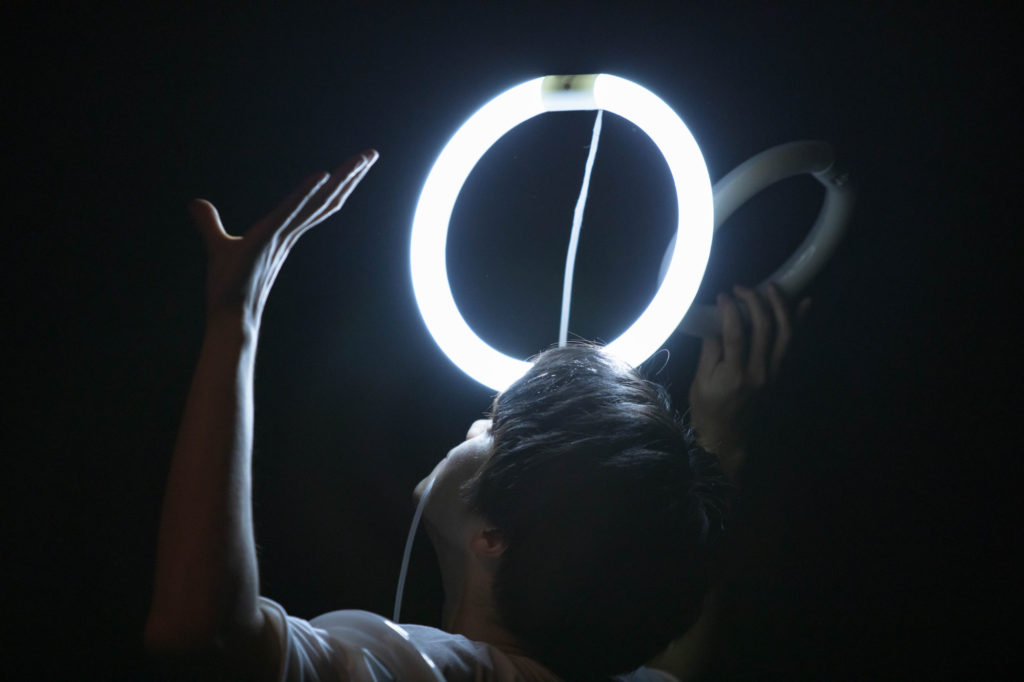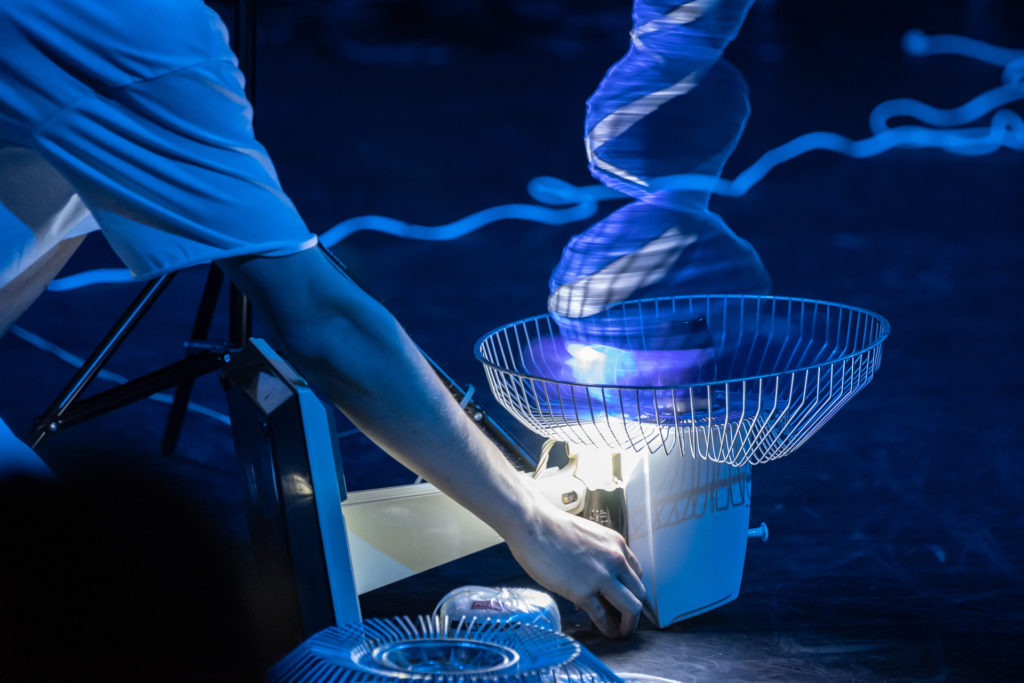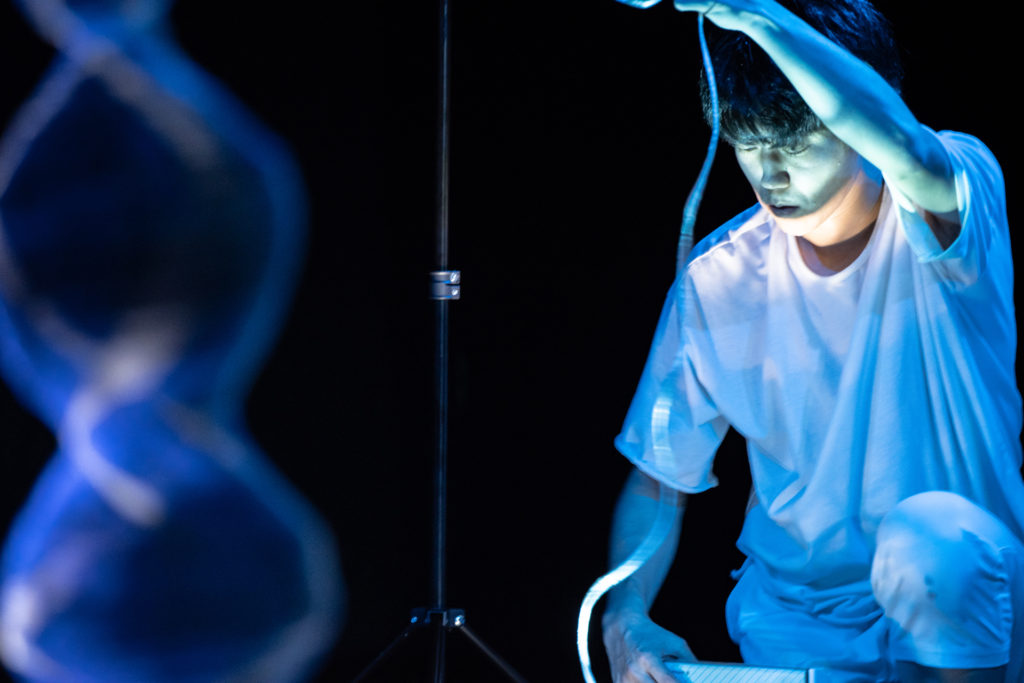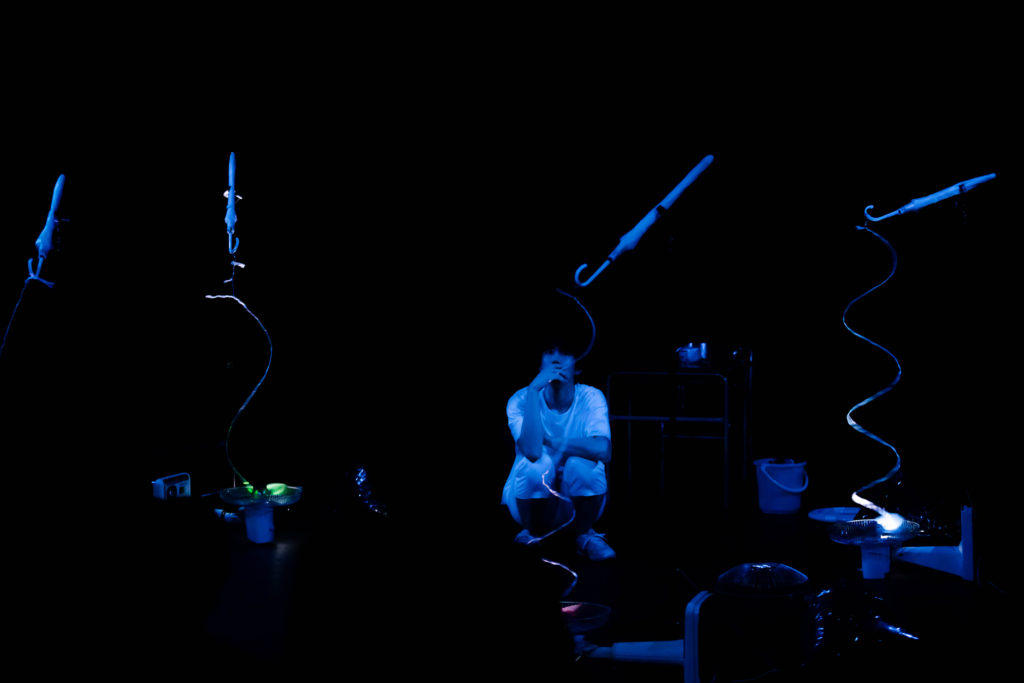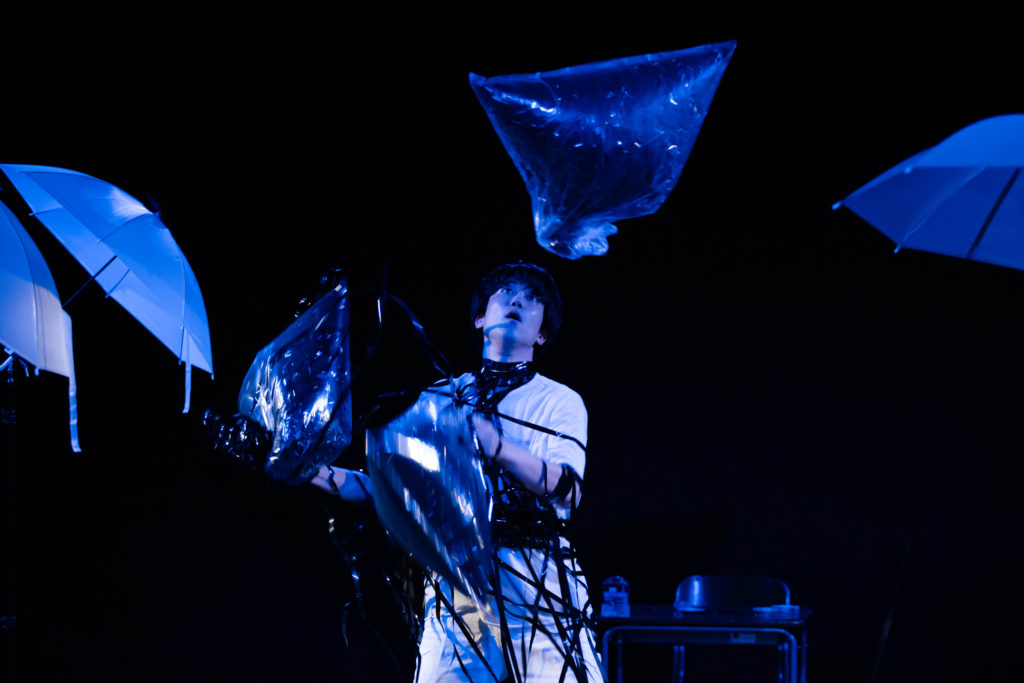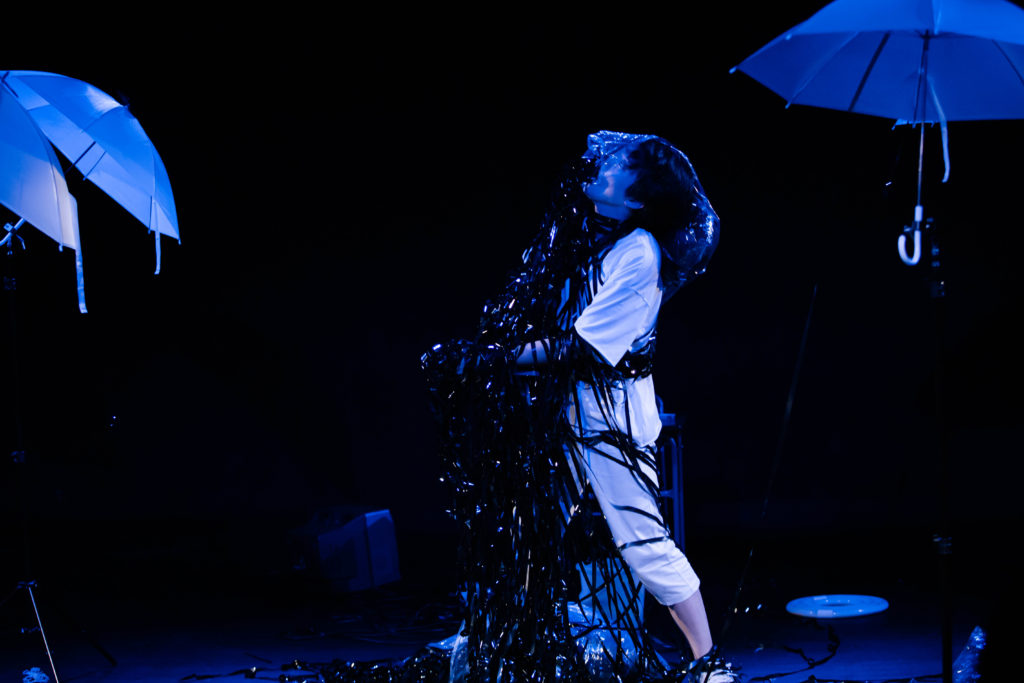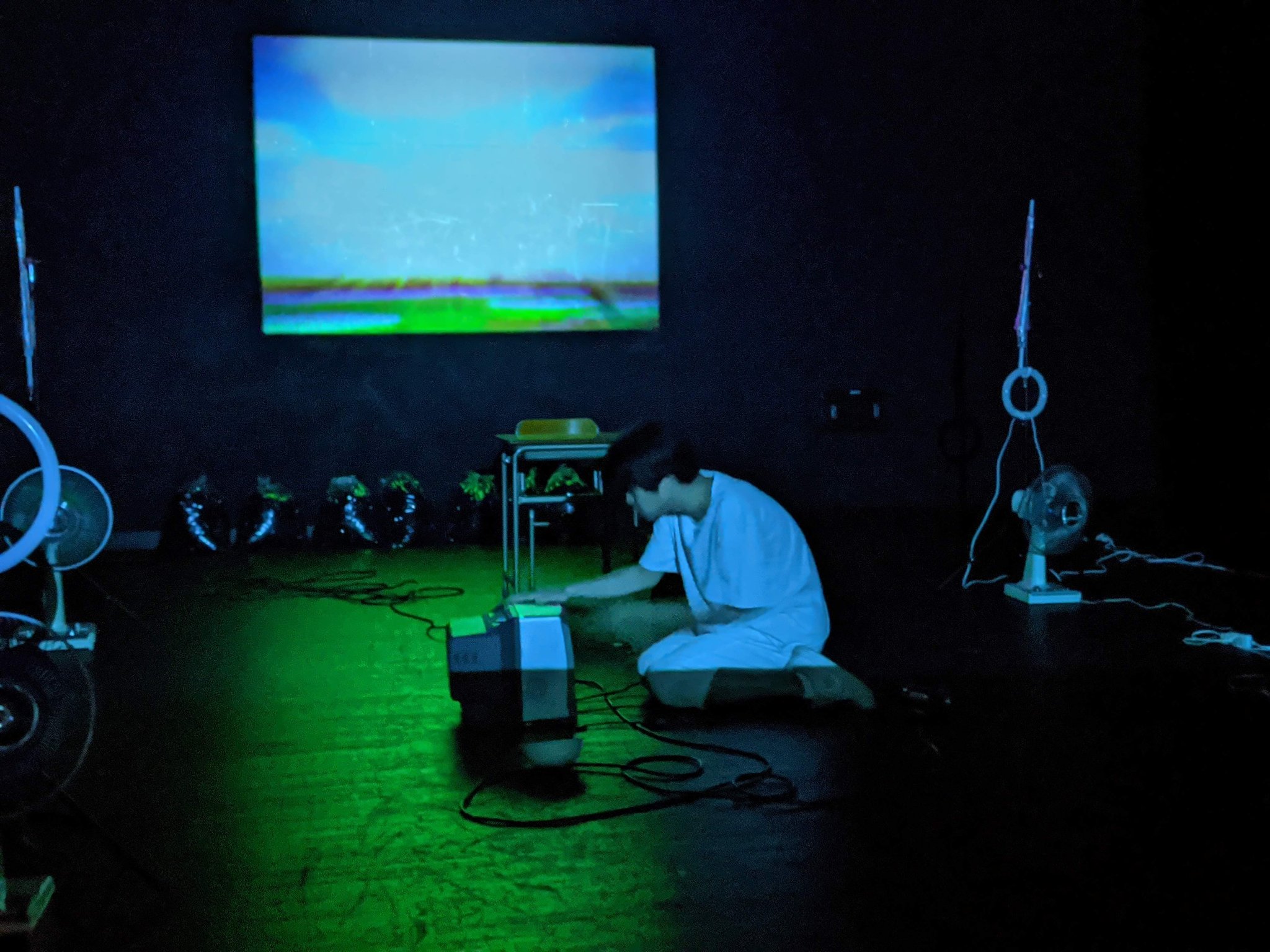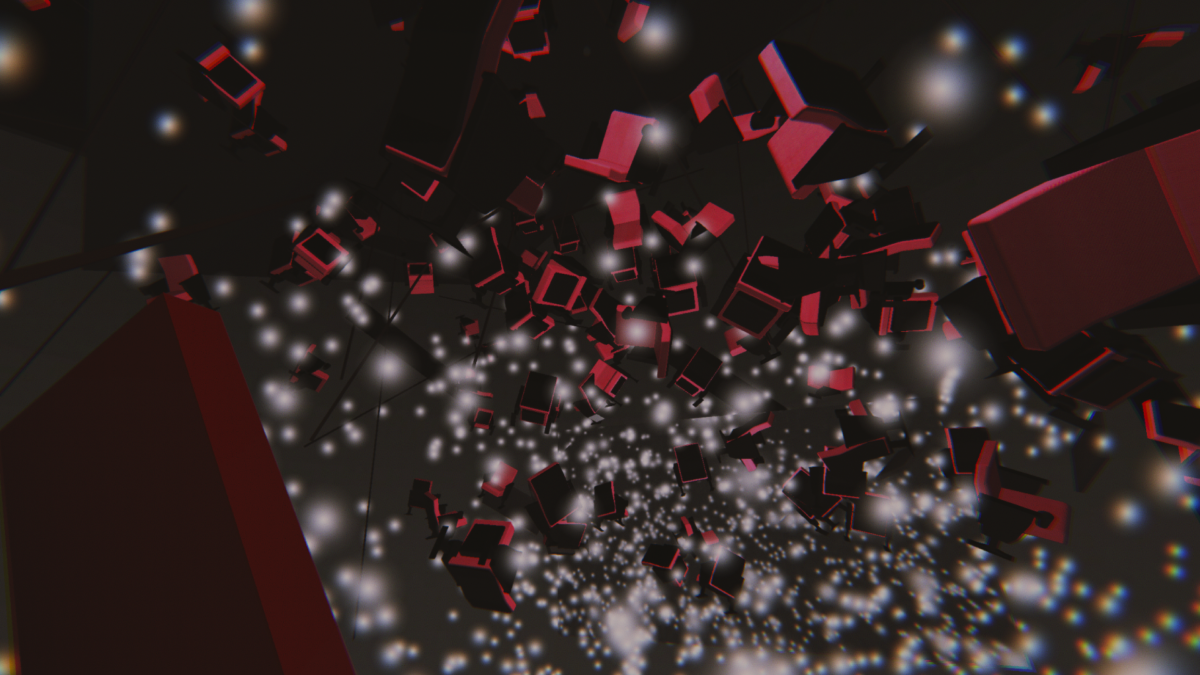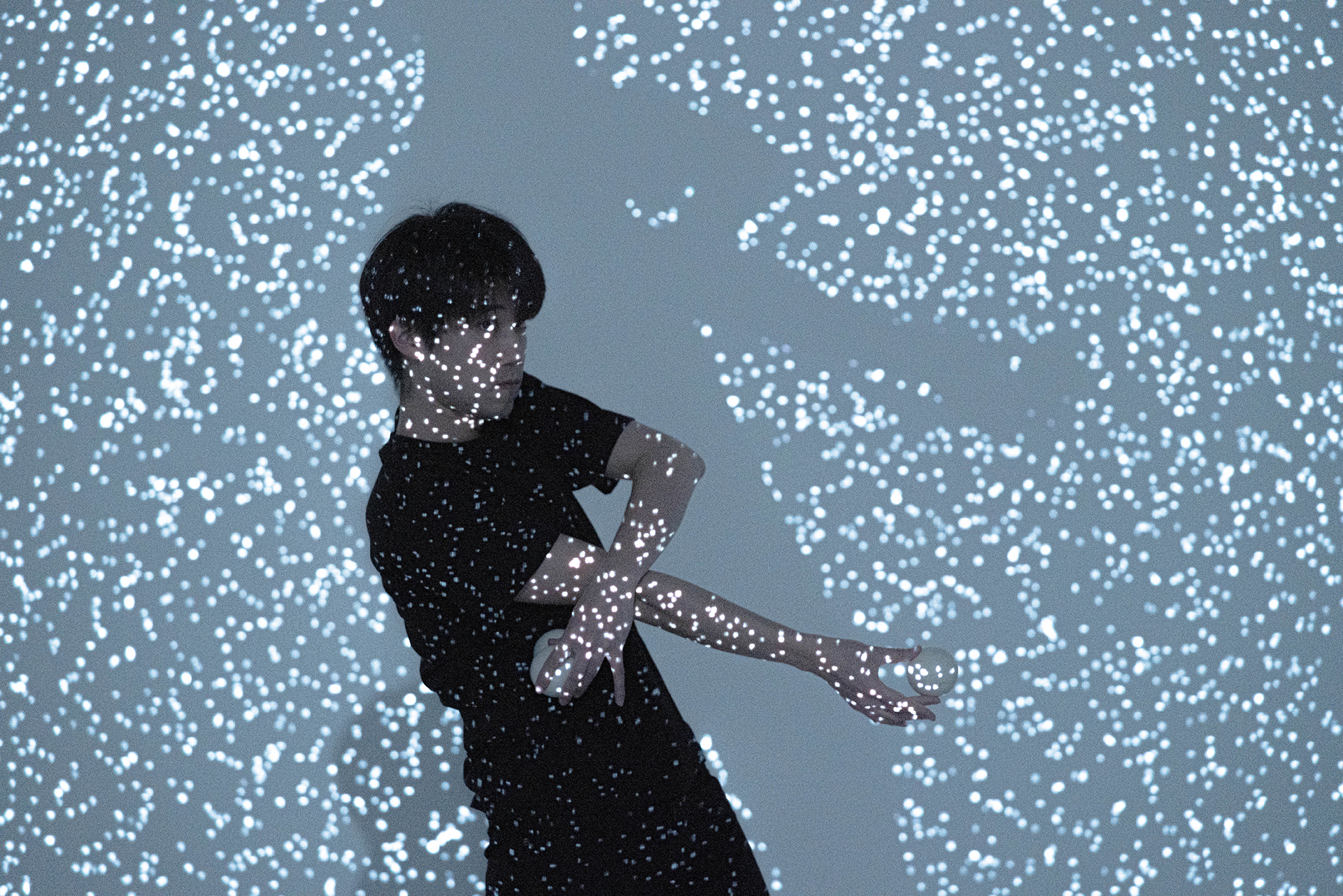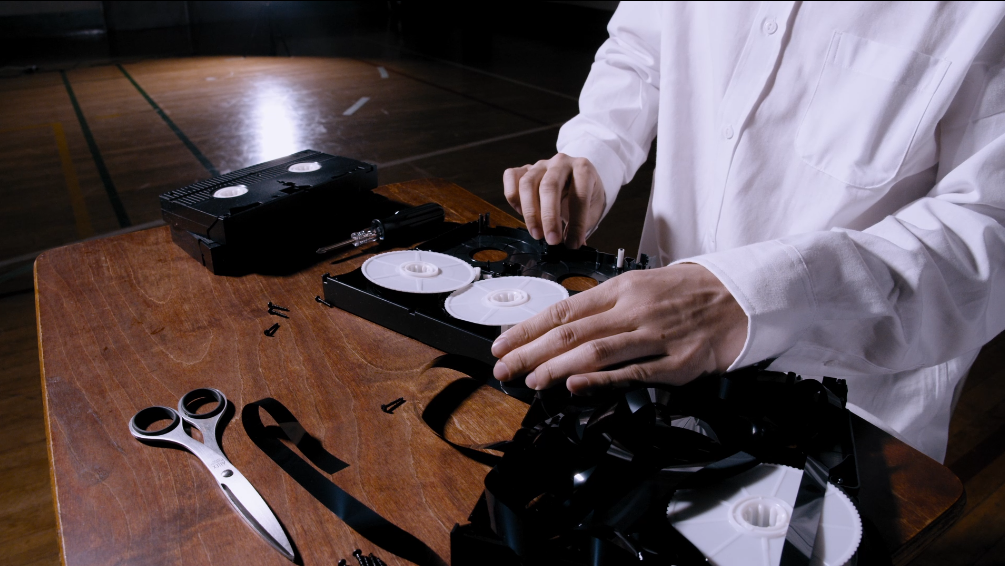ものを見つめ、その形質や内在するエネルギーに沿ってものと接続すること。
その接続の際に生まれる感覚や、想起される記憶は「身体の必要性」を強く呼び起こす。そのリアリティこそが、情報の激流の中で疲弊する人間にとって「自分が世界に確かに存在すること」を肯定する。岡本が長年続けてきたジャグリング(=ものと身体との関係の模索)を通じて身に着けてきたのは、そんな絶望との戦い方だった。
ものとの接続によって引き起こされる身体感覚や記憶。本作Magnetic Seaでは、この「記憶」の方に強くフォーカスを当てた。扱うのは「いわゆるジャグリング専用の道具」ではない。舞台上に並べられているのは扇風機、ビデオテープ、蛍光灯など今となってはあまり使われなくなった「もの」たち。役割を終えたもの、忘れ去られようとしているものは、それゆえに人々の感覚や記憶が深く沁みついている。岡本は、ジャグリングによって培った視点を持ってそんなものたちと接続し、より濃度の高いリアリティを呼び起こすことを試みる。
中之条ビエンナーレ 2019にて初演
翌年、横浜市主催マグカル事業の一環としてシアターHIKARIにて公演
To look at an object and connect with it according to its traits and inherent energy.
The sensations and memories that arise during this connection strongly evoke the “need for the body. This reality affirms “one’s own certain existence in the world” for people who are exhausted by the torrent of information. Okamoto has learned how to fight against such despair through juggling (i.e., the search for a relationship between objects and the body), which he has continued for many years.
The physical sensations and memories triggered by the connection with objects. In this work, Magnetic Sea, the focus is strongly on this “memory. It is not “so-called juggling tools” that are used. The objects on stage are fans, videotapes, fluorescent lights, and other “things” that are no longer in use. Things that have finished their roles and are about to be forgotten are, therefore, deeply imbued with people’s senses and memories. Okamoto attempts to connect with such objects with the perspective he has cultivated through juggling, and to evoke a higher density of reality.
Direction/Programming : Teruki Okamoto
Production : Room Kids
